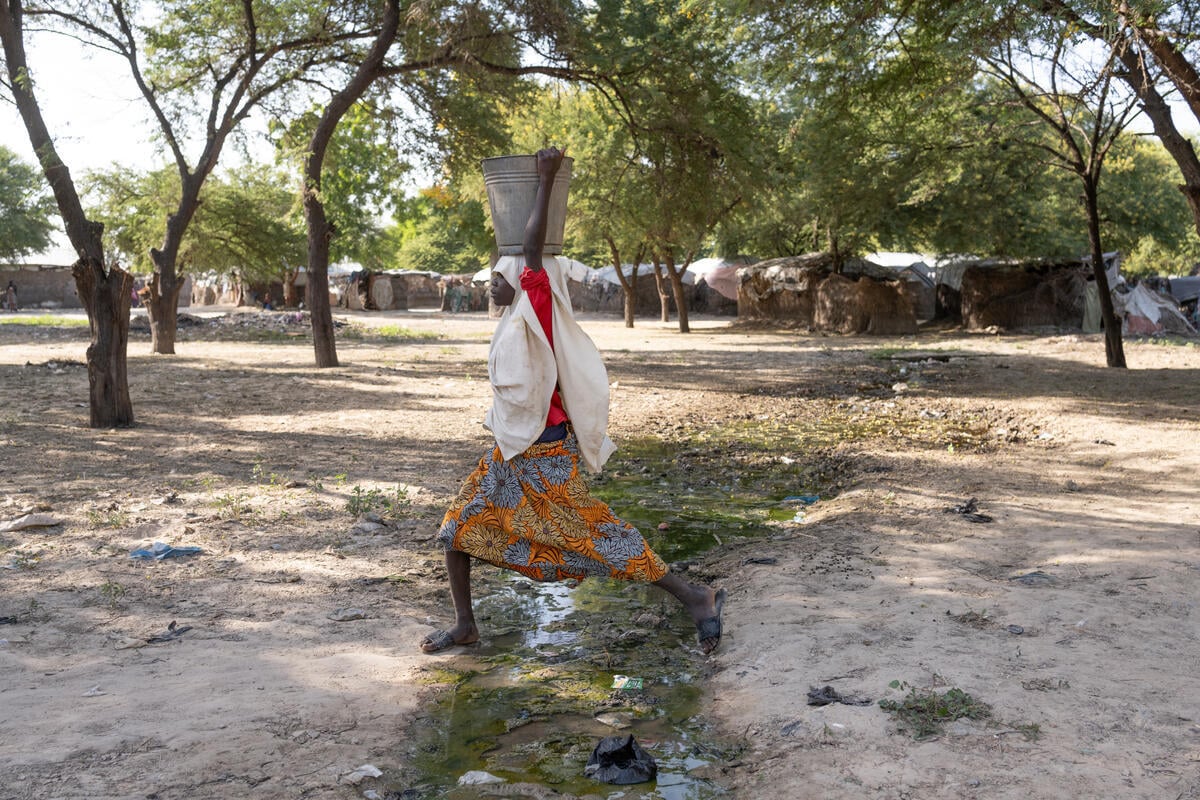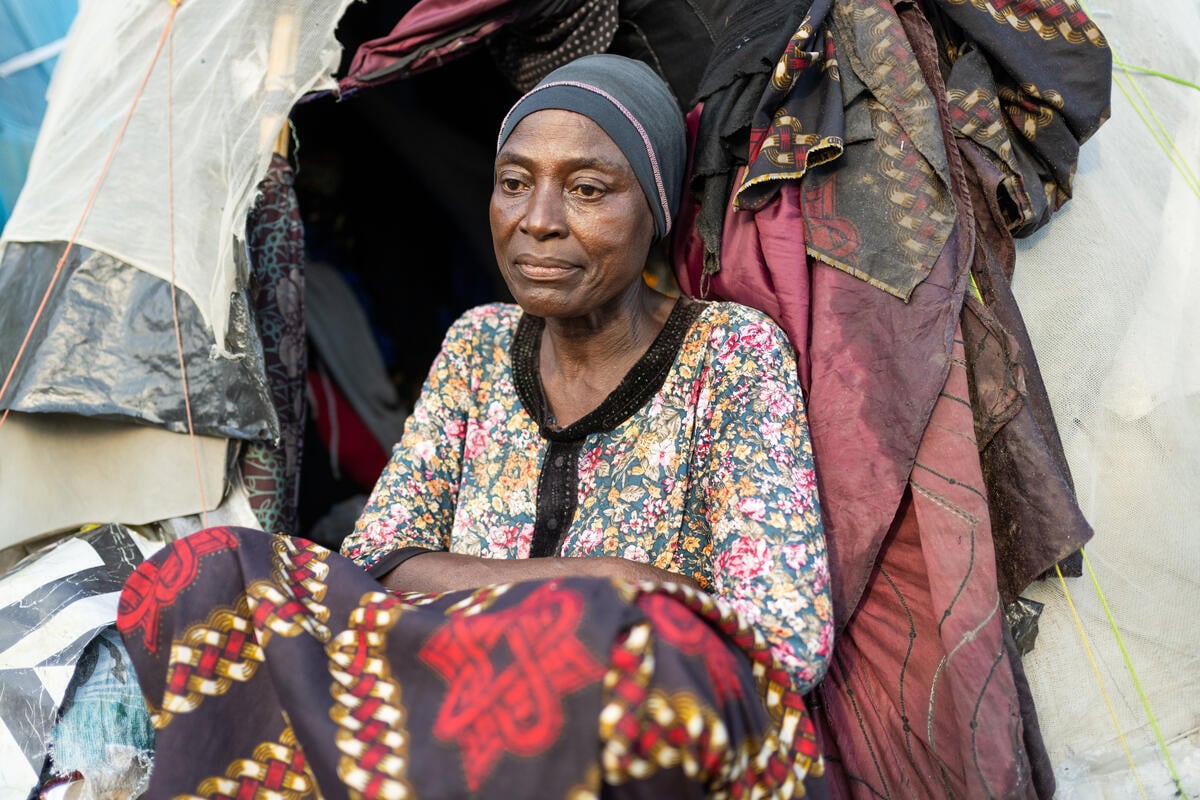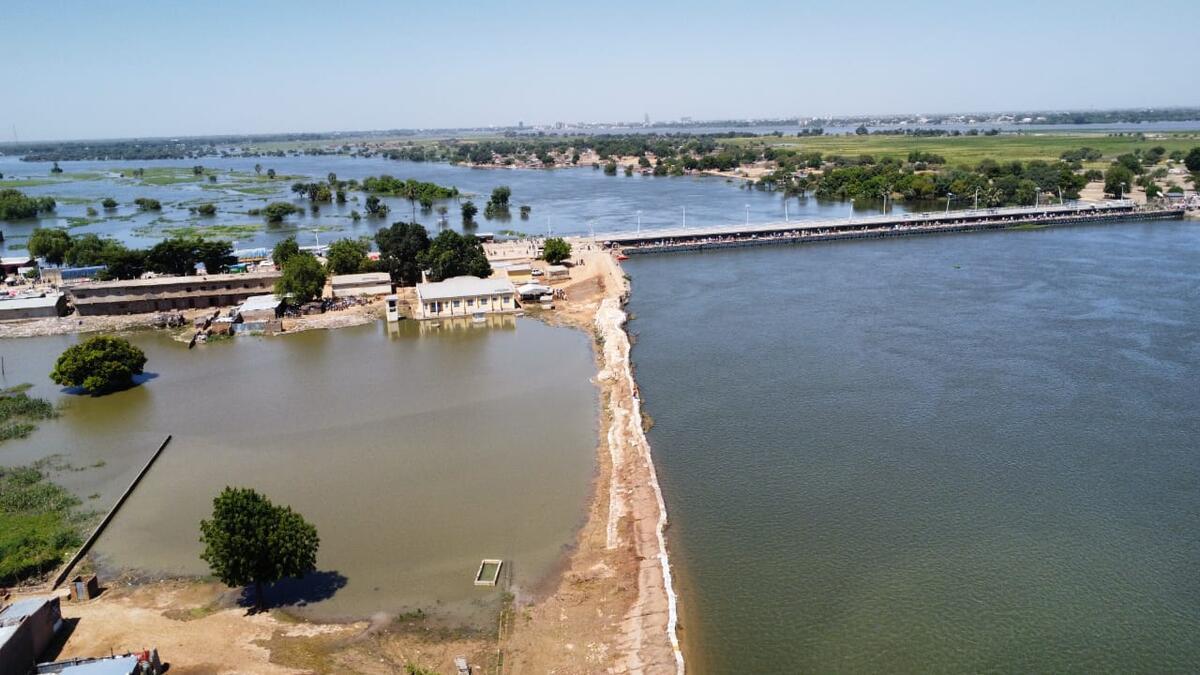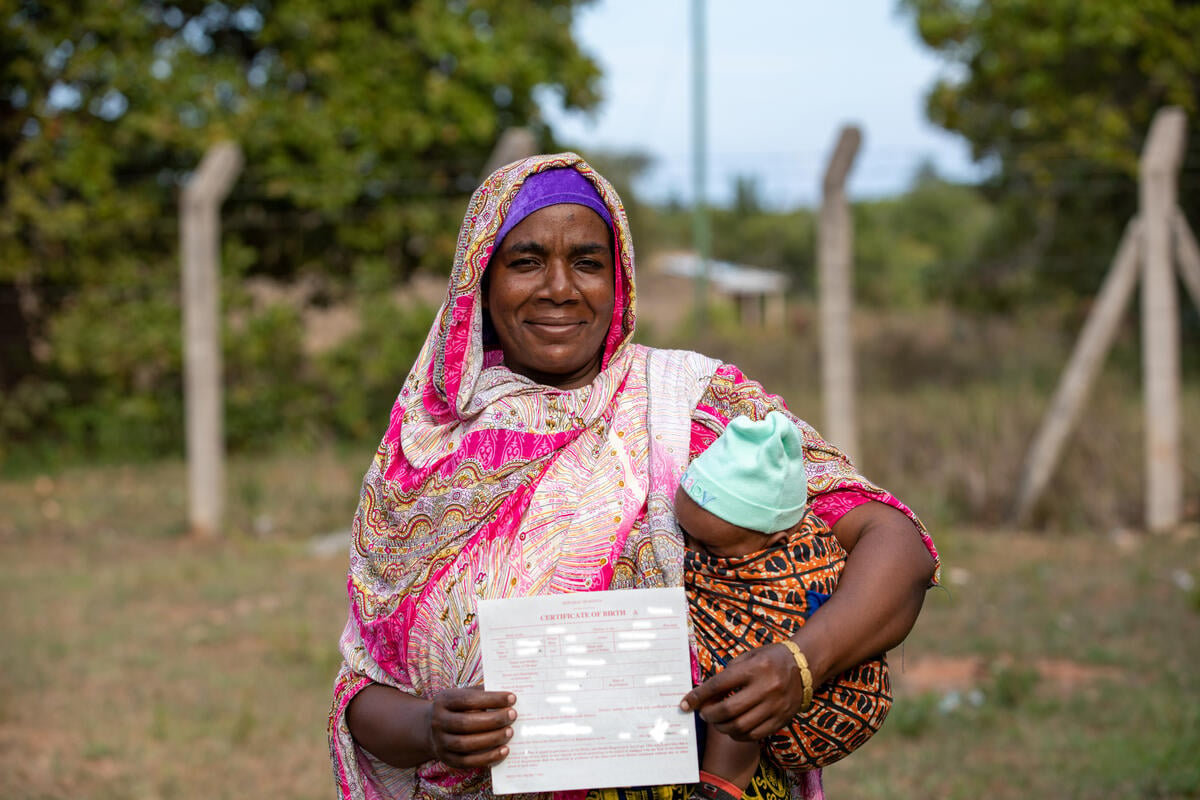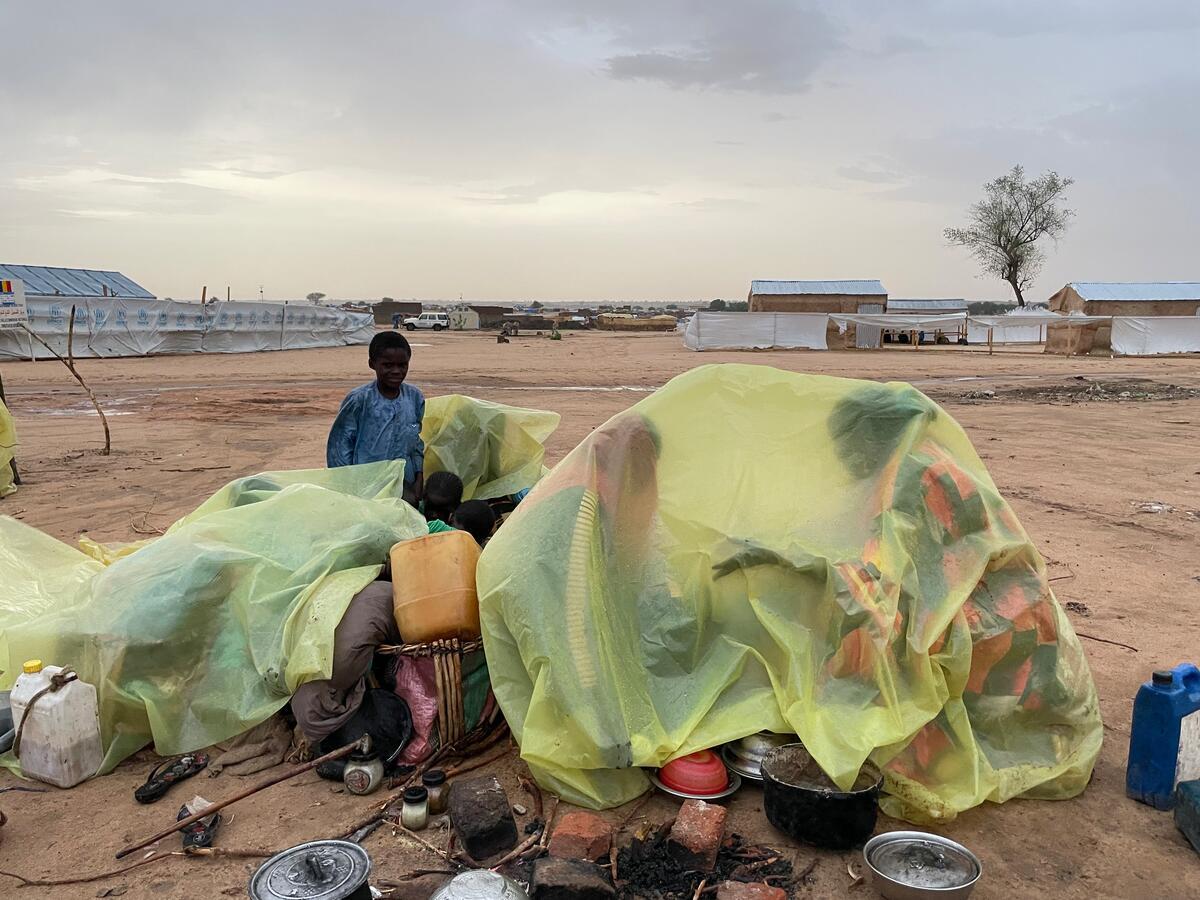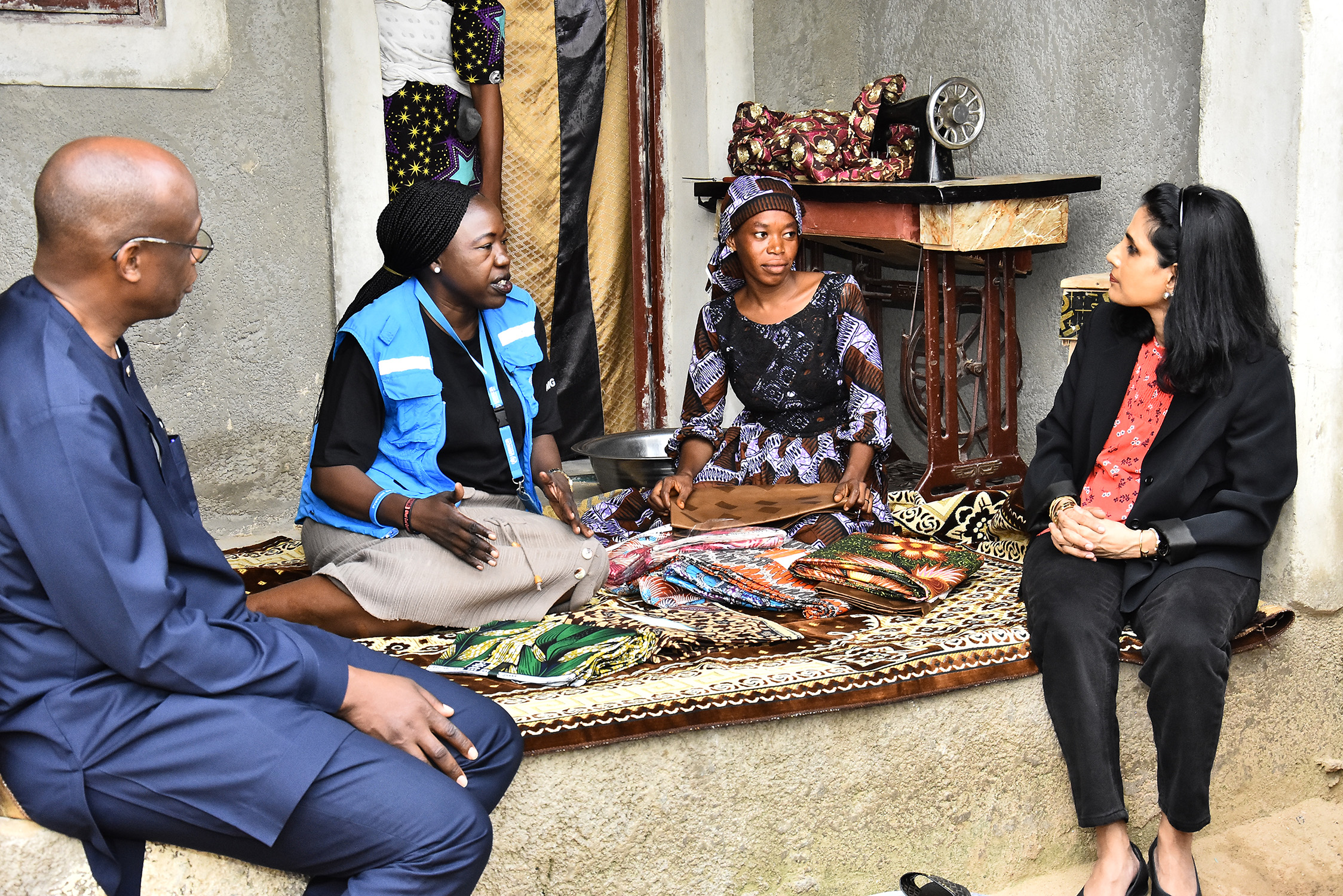More Sierra Leonean refugees set to fly home from Nigeria
More Sierra Leonean refugees set to fly home from Nigeria

LAGOS, Nigeria, September 3 (UNHCR) - In a vote of confidence for their country's peace process, a second group of Sierra Leonean refugees in Nigeria started their journey home today under the auspices of the UN refugee agency.
On Tuesday, 48 Sierra Leoneans left Nigeria's Oru camp on a two-hour bus journey to the capital of Lagos, where they will stay overnight and undergo customs procedures at Hajj camp, near the airport. They will fly to Sierra Leone's capital of Freetown on Wednesday, joined by 15 urban refugees living in Lagos who had sought UNHCR's help to go home.
The group forms the second convoy of Sierra Leonean refugees returning from Nigeria since voluntary repatriation started on August 28, bringing the total number so far to 132. Some 270 out of the over 2,000 Sierra Leoneans who fled to Nigeria over the years have signed up to go home.
"The Lagos-Freetown airlift is part of a one-month operation that will see a total of 270 Sierra Leoneans repatriate in five weekly flights from Lagos," said Maggie Heraty, UNHCR's senior logistics officer. "Logistically speaking, this is a relatively easy operation with few people at a time, nothing like the bigger operations where we return many more people at once."
Landing at Lungi Airport near Freetown last Wednesday, the first group of returnees - comprising mostly women and children - was received by Sierra Leonean government officials, traditional paramount chiefs and staff from the UN refugee agency.
"It is wonderful to be home," wept Fatmata, carrying her baby and dragging her enormous bag off the plane. She was among the several thousand refugees who fled to Nigeria in 1997, when civil war was raging in Sierra Leone.
Fellow returnee Victor Johnson recalled his flight in 1997. "My wife wanted to stay to continue her little business while I checked out the conditions in Nigeria. We were in close contact until 1999 but since then, when the rebels came, I have not heard from her."
Though Johnson's house was burnt and his family's whereabouts were unknown, he believed that all would be fine when he arrived home. "After the recent elections, I believed that the time was finally ripe for return. I want to live in peace in my own land," he said.
Returnees have been grouped according to areas of origin, with the first two convoys originating mostly from Freetown. Three subsequent flights will transport returnees from other regions, including Bo, Kenema, Makeni and Koidu, in the interior of the country. The repatriation operation is set to be completed by September 25.
Each returnee family will receive a reintegration coupon entitling it to a two-month food ration provided by the UN World Food Programme, including 18 kg of cereals, 1.5 litre of oil and 7.5 kg of pulses. The reintegration kit also comprises three blankets and three sleeping mats as well as soaps, a jerry can, a kitchen set, a plastic sheet and a lantern per family.
Returnees from Freetown will receive their package at UNHCR office in Lungi as well as a secondary transport allowance of 15,000 leones ($7.50) to make their own way back home from the Lungi peninsula via ferry. Returnees from other parts of the country will be transported to Port Loko way station, where the same procedures will apply. If necessary, they will stay overnight in the Port Loko way station before continuing their journey.
All returnees will be vaccinated against measles before leaving Nigeria. They will also receive information notes about the general security situation inside Sierra Leone, as well as details of the education system - for which UNHCR provides community-based assistance, through the provision of school buildings, furniture, and learning materials - and school enrolment.
Since September 2000, the UN refugee agency has assisted 112,000 Sierra Leonean returnees to resettle at home. Most have returned from Liberia and Guinea, with smaller caseloads from Nigeria, Ghana, Mauritania, Guinea-Bissau and Côte d'Ivoire. In all, a total of 170,000 Sierra Leonean refugees are estimated to have returned, either through UNHCR-organised programmes or spontaneously from countries of asylum.

